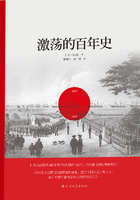call it seein' life - 'tis death an' worse comes to the most of 'em.Ay, 'tis better to stay by the land, as the Lard said, till time comes to lie under it." I looked away across the field where the hot air throbbed and quivered, and the fallen grass, robbed already of its freshness, lay prone at the feet of its upstanding fellows.It is quite useless to argue with old Dodden; he only shakes his head and says firmly, "An old man, seventy-five come Martinmass knows more o' life than a young chap, stands ter reason"; besides, his epitome of the town life he knows nothing of was a just one as far as it went; and his own son is the sweeper of a Holborn crossing, and many other things that he should not be;but that is the parson's secret and mine.
We took rank again and swept steadily on through the hot still hours into the evening shadows, until the sinking sun set a GLORIAto the psalm of another working day.Only a third of the field lay mown, for we were not skilled labourers to cut our acre a day; Isaw it again that night under the moonlight and the starlight, wrapped in a shroud of summer's mist.
The women joined us on the third day to begin hay******, and the air was fragrant of tossed and sun-dried grass.One of them walked apart from the rest, without interest or ******* of movement; her face, sealed and impassive, was aged beyond the vigour of her years.I knew the woman by sight, and her history by hearsay.We have a code of morals here - not indeed peculiar to this place or people - that a wedding is 'respectable' if it precedes child-birth by a bare month, tolerable, and to be recognised, should it succeed the same by less than a year (provided the pair are not living in the same village); but the child that has never been 'fathered' and the wife without a ring are 'anathema,' and such in one was Elizabeth Banks.She went away a maid and came back a year ago with a child and without a name.Her mother was dead, her father and the village would have none of her: the homing instinct is very strong, or she would scarcely have returned, knowing the traditions of the place.Old Dodden, seeing her, grumbled to me in the rest-time.- "Can't think what the farmer wants wi' Lizzie Banks in 'is field." "She must live," I said, "and by all showing her life is a hard one." "She 'ad the makin' of 'er bed," he went on, obstinately."What for do she bring her disgrace home, wi' a fatherless brat for all folks to see? We don't want them sort in our village.The Lord's hand is heavy, an' a brat's a curse that cannot be hid."When tea-time came I crossed the field to look for a missing hone, and saw Elizabeth Banks far from the other women, busied with a bundle under the hedge.I passed close on my search, and lo! the bundle was a little boy.He lay smiling and stretching, fighting the air with his small pink fists, while the wind played with his curls."A curse that cannot be hid," old Dodden had said.The mother knelt a moment, devouring him with her eyes, then snatched him to her with aching greed and covered him with kisses.I saw the poor, plain face illumined, transfigured, alive with a mother's love, and remembered how the word came once to a Hebrew prophet:-Say unto your brethren Ammi, and to your sisters Ruhamah.
The evening sky was clouding fast, the sound of rain was in the air; Farmer Marler shook his head as he looked at the grass lying in ordered rows.I was the last to leave, and as I lingered at the gate drinking in the scent of the field and the cool of the coming rain, the first drops fell on my upturned face and kissed the poor dry swathes at my feet, and I was glad.
David, child of the fields and the sheepfolds, his kingship laid aside, sees through the parted curtain of the years the advent of his greater Son, and cries in his psalm of the hilltops, his last prophetic prayer:-He shall come down like rain upon the mown grass.
Even so He came, and shall still come.Three days ago the field, in its pageant of fresh beauty, with shimmering blades and tossing banners, greeted sun and shower alike with joy for the furtherance of its life and purpose; now, laid low, it hears the young grass whisper the splendour of its coming green; and the poor swathes are glad at the telling, but full of grief for their own apparent failure.Then in great pity comes the rain, the rain of summer, gentle, refreshing, penetrating, and the swathes are comforted, for they know that standing to greet or prostrate to suffer, the consolations of the former and the latter rain are still their own, with tender touch and cool caress.Then, once more parched by the sun, they are borne away to the new service their apparent failure has fitted them for; and perhaps as they wait in the dark for the unknown that is still to come they hear sometimes the call of the distant rain, and at the sound the dry sap stirs afresh - they are not forgotten and can wait.
"SAY UNTO YOUR SISTERS RUHAMAH," cries the prophet.
"HE SHALL COME DOWN LIKE RAIN ON THE MOWN GRASS," sang the poet of the sheepfolds.
"MY WAYS ARE NOT YOUR WAYS, SAITH THE LORD."I remember how I went home along the damp sweet-scented lanes through the grey mist of the rain, thinking of the mown field and Elizabeth Banks and many, many more; and that night, when the sky had cleared and the nightingale sang, I looked out at the moon riding at anchor, a silver boat in a still blue sea ablaze with the headlights of the stars, and the saying of the herdsman of Tekoa came to me - as it has come oftentimes since:-Seek Him that maketh the seven stars and Orion, and turneth the shadow of death into the morning, and maketh the day dark with night; that calleth for the waters of the sea and poureth them out upon the face of earth; the Lord is His name.















